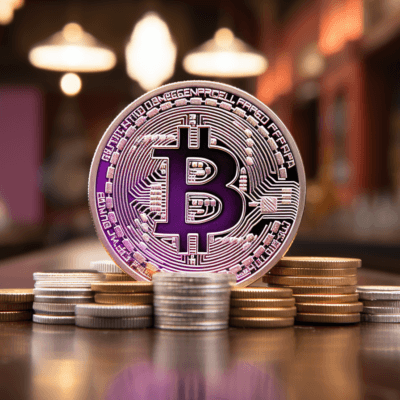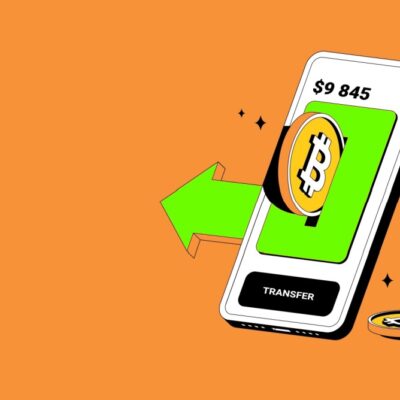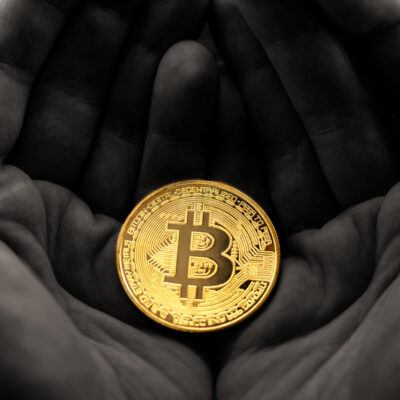
You probably want to know the future Bitcoin price because you are scared that if you invest money today, the price will dump, and you’ll lose money. Right now, that the price seems high compared to what it was last year. Did you miss the bull run? Are you buying the top like a sucker?
As I write this article, the price has been hovering around $30k-40k for a couple of weeks. It recently “crashed” from $64,000 and has lost more than 50% of its USD value.
Is the Bitcoin story over?
Unlikely.
The good news is that you are already thinking long-term. By asking what the price of Bitcoin in 2030 will be, you’ve already visualized yourself buying and not selling for another 9 years. In my opinion, this is the best mindset to have when you buy Bitcoin.
If you bought Bitcoin in 2012 at $0.36, and then it crashed down to $0.21, would you have sold, or would have held all the way up to $9,000 in 2020?
Even just 12 months ago, if you told someone you could purchase a Bitcoin for $9,000 and it would triple over the next year, you’d probably take that deal, right? Of course! At $36,000, those people who bought the local top at $64,000 probably feel pretty bad about their decision right now. I’m confident that if they don’t sell, in 2030 they will look back on that buy as a smart decision.
Nobody knows exactly what the exact price of Bitcoin will be in 2030, but I have my own framework of understanding that gives me an idea of where I think the price may be in the next decade.
How I Think About The Price Of Bitcoin In 2030
Bitcoin Is A Unique Asset Class And It’s Being De-risked
It’s a very common story to beat yourself up and look at how rich you’d be if you had bought Bitcoin in 2010 and just held it for 10 years. Wow. If you had just put in $100, you’d be a millionaire by now!
What that doesn’t tell you is that it’s been one hell of a journey from then until now. Read up on the battle of P2SH in 2011. Then the massive blocksize war in 2017 and the contentious hard fork that followed. There were many points in Bitcoin’s history where, even to OG’s and insiders, the future of Bitcoin was at risk.
Buying Bitcoin in 2010 was a gamble. You would have been buying a futuristic, computer science novelty item. Unless you had a complete understanding of the project and ultimate conviction, you probably wouldn’t have gone “all in”.
Even if you bought some, who knows what you would have done from then until now.
As of 2021, those battles are behind us. Don’t get me wrong, there’s still a ton of challenges to be concerned about in the future. Bitcoin isn’t “guaranteed” to win anything. We’re still engaging climate fanatics and unelected global financial bodies like the IMF, WEF, FATF, and more.
We’ve made a lot of headway though. Bitcoin has a full decade of operation behind it. It’s owned by individuals, corporations, and sovereign nations. US citizens store it in their IRA. Elected officials openly own it and advocate for it. Freedom fighters and human rights organizations depend on it. Bitcoin is here and if it comes under threat, a lot more people are willing to go to bat for it than there were in 2011.
At the very least, you could make the case that there are multibillion dollar corporations building out Bitcoin infrastructure who’d be willing to hire some lawyers to go to Washington DC if it really came down to it.
On top of that, it’s been 12 years without a hack and over 99.986% uptime. You can send a transaction from anywhere in the world and have it confirmed within about an hour. Bitcoin just works.
That’s a long way to say that Bitcoin has been largely “de-risked“, meaning that it’s pretty much not possible that it’s going to zero. It’s not just going to disappear one day. When you wake up tomorrow, Bitcoin will still be here.
Whether or not you believe in the Bitcoin story, and how much you want to allocate to Bitcoin compared to your other investments is another thing, but you can’t say that Bitcoin is just a fad. The story of 2010 to 2020 was all about the emergence and de-risking of the asset. I believe that the story of 2020 to 2030 is going to be about the first movers and solidification of the Bitcoin story. By 2040, it’ll just be another choice amongst other investment vehicles: stocks, bonds, real estate, and Bitcoin!
Beyond that, it’s hard to say. Will Bitcoin be the main way that people save? Will there be new challenges to face? It’s impossible to predict what will happen in 20-30 years, but you can change your Bitcoin investment strategy as new information becomes available.
Related Content
Young People Are Growing Up With Bitcoin And Will Get Paychecks In The Future
It’s easy to forget how long 10 years is. When you talk in decades, it seems like it’ll be over quickly. Oh, it’ll just be another decade or two!
A lot happens in a decade, especially in the world of technology.
Think back to 2010. What was the internet like back then? What was the world like back then? How much have you changed as a person? How have the people changed around you? Look back at some old photos and you’ll be surprised at how much time has passed.
Now multiply that that speed of change for anyone graduating high school in the next 10 years.
Someone graduating high school this year could have a stable job and a couple of kids in a decade. Someone who is in fifth grade will be graduating high school and going to college or getting their first paycheck. How do you think the priorities of a fifth grader right now might be different than your father or grandfather?
Now, instead of being 30 years old and learning about Bitcoin for the first time, you’ll have the next generation of kids growing up with Bitcoin as just a normal thing. A normal thing to buy. A normal thing to exchange with friends. A normal thing to build on.
The new generation is getting money, and they are going to spend it differently than the generations before them. Are they going to buy gold to protect their wealth – or Bitcoin? Why would you buy a shiny rock when you could buy a digital currency accepted around the globe that you can store in your mind? Instead of thinking really hard and doing tons of research, and settling on a 1% asset allocation, we’ll see the new generation with 10%, 50%, or even 100% allocations.
Not everyone will buy Bitcoin, of course, but a larger percentage of the next generation will be open to it and act on it. Right now, they don’t have money to invest, but they will in the future.
Bitcoin Performs A Function And Is Consistently Onboarding New Users
It’s hard to imagine where we are on the adoption curve of Bitcoin. Are we an early adopter? Are we the smart money or the herd, primed and ready to get rekt? Nobody really knows for sure, but one framework I think is useful to think about is comparing Bitcoin adoption to internet adoption.
Sure, the internet is cool because you can look at memes, tweet, email, and play video games. Bitcoin sucks because it’s boring, right?
If you are too young to remember, or just forget, the internet was once pretty hard to use as well. The first meme was a fucking virtual baby dancing and everyone thought that was hilarious. They were excited to talk about it. It was dinner conversation. You were in the know if you had seen the dancing baby.
We’ve come a long way since then, and we’ve got a long way to go in Bitcoin Land.
The good news is that instead of dancing babies and video games, we’re getting rich. Well, at least we’re preserving our wealth against an infinite money printer at the fed. Though learning about how money works isn’t as fun or entertaining as what the internet does, feeling financially secure is something that everyone can relate to. Literally everyone. Maybe that’s the reason that Bitcoin adoption is steadily outpacing the growth of the internet.
If you want to make a guess at how much Bitcoin is going to be worth in 2030, you must think about the future. What will the world look like in 10 years? What will be the same, and what will be different, and how will trends continue or change?
I bought my first Bitcoin in 2017, but I didn’t start learning about it until early 2020. Now, I own a Bitcoin website and I’m The Bitcoin Guy™ among friends and family. That happened in a year. How many others will follow this same journey of buying Bitcoin for the first time, then going down the rabbit hole?
Look up some Bitcoin history from 2013. What was required to purchase Bitcoin? Sometimes, you’d have to take physical cash to a local 7-11, then wait to be sent Bitcoins from a company halfway across the world. Sometimes, you’d have to meet another person in meatspace and trade peer-to-peer for a personally agreed price. There was no other way.
Compare that to today, where I can buy $100,000 worth of Bitcoin instantly, and have dozens of options of where to buy in most countries. I can get a secure mobile wallet instantly on the app store, or a specially designed hardware wallet with 2-day shipping, and enroll in free Bitcoin education courses online. I can build my own node in a few hours, and open lightning channels without a command line. A lot has changed, and a lot will continue to change to make things faster and easier to use Bitcoin the network, and Bitcoin the asset.
Most users are not technical, so things will trend towards making Bitcoin accessible to the average person, while in the background, developers will continue to build upon the shoulders of giants before them.
Bitcoin companies are working on making onboarding more people faster and easier and keeping them around for the long term. They have a financial incentive to do so. You can be sure they are using their financial and human resources to make it happen. Kind of like the internet, right?
Developers build. Companies market. Friends talk. Progress compounds on itself with an open network like Bitcoin. You do not need permission to use Bitcoin!
More users + more builders + more resources = a higher price for Bitcoin by 2030 and beyond. Of course, I can’t predict what that price would be, but is it crazy to think that the price could double? Triple? 10x? 100x?
It’s Basic Supply & Demand
I feel like with Bitcoin, because of the exaggerated stories you hear in the media, people have developed an “all or nothing” mentality. Either I get insanely rich in a short period of time, or I’m not interested. I want to invest $100 today and have $10 mil tomorrow, or I’m moving on to something else.
By taking a much more realistic, sensible approach, you can still participate in this once-in-a-generation opportunity and grow your wealth over the next decade.
Assuming demand for Bitcoin increases over time, the price should increase as well. This is explained in one simple chart.
Bitcoin has a limited supply, and that cannot be changed. This is one of the main features of the asset. There will never be more than 21 million Bitcoins. Even though, at this period of time, there are new Bitcoins being added to the network daily through block subsidies, those subsidies are decreasing every 4 years through the halving process. (Note: This is why it pays to understand how Bitcoin works).
Assuming that demand increases for Bitcoin over time, it’s hard not to believe that the price will increase over time. If supply is decreasing, and demand is increasing, then price should rise.
This calculation assumes that demand will continue to increase over the next decade.
I made the case for Bitcoin’s increase adoption above, with a comparison to the adoption of the internet. Another framework I use to consider how demand for Bitcoin will increase in the coming years is to think about what Bitcoin the asset could replace, and how much it will replace.
For example, think about savings accounts. Why would I store 100% of my cash in a savings account that yields less than 1% interest, while inflation is 2-5%, and assets like real estate are rising 8-10% per year? I’m losing purchasing power!
What about stocks? I am really not interested in reading quarterly reports or listening to earnings calls. I don’t want to roll the dice on a random stock, even if it’s choosing between $SBUX, $AMZN, or $AAPL. Plus, what if the company is profitable but the CEO does something that hurts the company’s valuation, like smoke a joint on the Joe Rogan podcast? Maybe it’s just easier to buy a little Bitcoin instead.
Then you have real estate. Most people can’t get access to $60,000 for a down payment on a $300,000 investment property, nor do they have the know-how or resources to maintain and manage that property. It’s probably easier to just buy a little Bitcoin to start with.
Plus, it’s a liquid asset I can trade peer to peer. I can divert a portion of my paycheck directly into Bitcoin each month for savings, and if I need to pay a friend I can just send them some Bitcoin. It’s divisible down to fractions of a penny in value. I can’t pay for drinks at the bar with a fraction of an $AAPL stock or REIT.
What’s even cooler is that the number of people who prefer Bitcoin over any other payment method will grow as well.
PAY ME IN BITCOIN!
When you start comparing the advantages of Bitcoin over other types of assets, it’s easy to see that Bitcoin will absorb at least a small part of each market.
It doesn’t have to be all or nothing. Bitcoin doesn’t have to replace fiat completely. Bitcoin doesn’t have to completely destroy everything else to be successful. It just has to be bigger than it is right now, and I think it’s pretty inevitable that it will be.
Final Thoughts
When Bitcoin was trading at $2,000 – $3,000 USD in 2017, I thought to myself, “What if it dips lower. Then I could really load up and buy a good amount.”. Then, when I was feeling extremely bullish around $12,000 in 2020, I reminded myself to stay humble and see how things play out for a couple of weeks before I buy. When the price shot up to $16,000 the next month, I decided to accept defeat and buy at $16k, rather than wait for another chance to dip back to $12k.
Most recently, in 2021, I bought at $57k, thinking it would go to $100k, and now it’s at $32,500 (July 2021).
As you read this post at some point in the future, these numbers may look cute. Imagine buying Bitcoin at less than $100,000 per coin. Wow. What a deal!
No doubt this is how you feel about anyone who bought under $1,000, but put yourself in their mindset of that person, at that year. Do you think they had an extreme conviction that Bitcoin would reach a price of $50,000 or more? They were probably concerned it would dip back to $200, or even be worth less than $1 someday.
There is risk in every investment. Nobody knows what the price of Bitcoin will be in the future. In the short term, the USD value of the Bitcoin you buy may go down. In the long term, the trend seems to suggest that it’ll go up. 2030 is 9 years away.
What are the chances that 2021 is the year that the Bitcoin price topped and never recovered? What are the chances that no new Bitcoin users come online, and that no new Bitcoin businesses appear, and that Bitcoin doesn’t get easier to buy, and that no other countries adopt it as a currency, and so on?
What are the chances that we are living in peak Bitcoin right now at this moment?
For me, personally, I think those chances are pretty slim. I think we’re just getting started with the Bitcoinization of our financial system. Therefore, I think the price of Bitcoin in 2030 will be a lot higher than it is right now. That’s my 2030 Bitcoin price prediction.


















 The Best Bitcoin Books
The Best Bitcoin Books
Leave a Reply